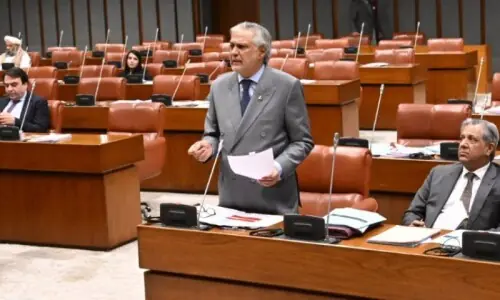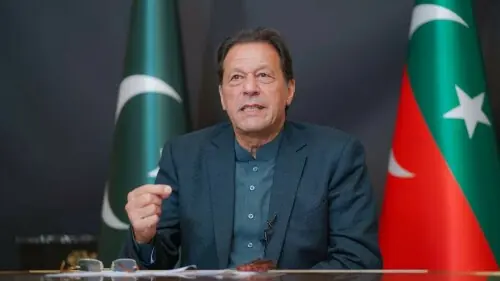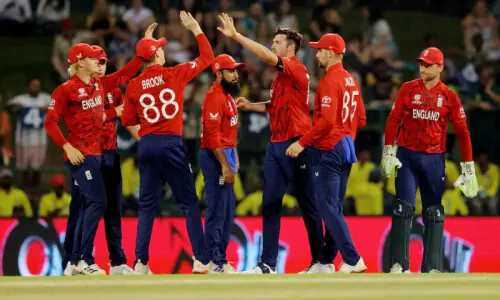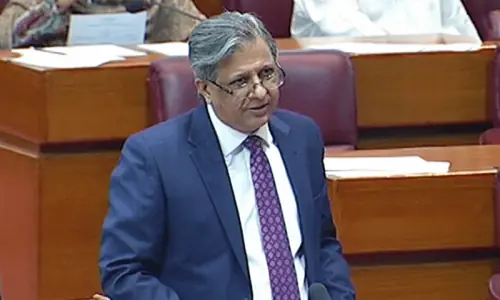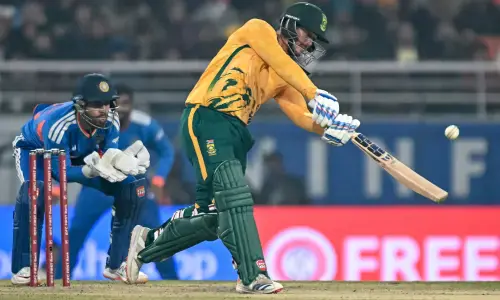
PESHAWAR/MIRAMSHAH: Emergence of a hitherto unknown Ittehad Mujahideen Khorasan and its direct confrontation with a powerful Shura led by Commander Hafiz Gul Bahadur is likely to change the entire ball game in the North Waziristan Agency where for the first time rifts have cropped up among the militant outfits.
IMK, an alliance of splinter groups, declared on Wednesday members of the Gul Bahadur-led North Waziristan Shura as its enemy and agents of the Pakistan army.
The group blamed that a few “so-called Jehadi contractors” for trying to keep them away from their objectives and warned people that it would not back out of the objectives and would take action against any person even if he belonged to the North Waziristan Shura.
A two-page statement in Urdu said: “IMK will pursue its objectives at all costs and will not spare anyone, of influence and position, in the way of its objectives.”
Differences surfaced among the militant outfits when the Shura disowned the Khorasan group on September 7 and expelled it from its rank.
“We tried time and again to reform the IMK but did not succeed. And finally we have decided to announce disassociation from the group,” the joint statement, signed by Hafiz Gul Bahadur and 10 other members of the Shura, said.
The members of the Shura who had signed the statement included Maulvi Rahim Noor, Mufti Sadiq Noor, Abdur Rehman, Maulvi Amir Sherf, Maulvi Amir Hamza, Maulvi Saddar Hayat, Muhammad Siddiq, Ahmad Shah Jan, Maulvi Saleem Khan and Sadiqullah.
Sources said that Gul Bahadur was under pressure to expel the Khorasan group after receiving complaints about its activities.
Outlining its major objectives, the IMK said it would collect information about spies, government agents and people who were on the payroll of the Pakistan army or hatched conspiracies against Mujahideen. And will use different tactics for the elimination of enemies of Islam.
Gul Bahadur who along with elders of the Utmanzai tribe had signed a peace deal with the government in September 2006 is in good books of the establishment and the Haqqani group avoids confrontation with security forces.
Militant groups have split into small groups and are engaged in clashes in all parts of the Federally Administered Tribal Area (Fata), except North Waziristan Agency, where for the first time a group has challenged the authority of the influential Shura.
The outlawed Tehrik-i-Taliban Pakistan (TTP) is divided in Kurram Agency and its local commander Fazal Saeed has rebelled against Hakimullah Mehsud. Supporters of the two groups recently clashed in lower Kurram.
Lashkar-i-Islam and Ansarul Islam have locked horns in Khyber Agency. Militant commanders in Orakzai are also in confrontation with each other.
Sources in the tribal borderlands termed the IMK a hardcore of hardliners including Waziris, Dawar, Punjabis and foreigners. The group keeps watch on movement of people spying on their activities.
The sources did not rule out a replication of the South Waziristan model where security forces had fully backed Commander Maulvi Nazir's armed supporters to expel Uzbeks and other groups from Wana in 2007.
Analysts and security experts said that differences and splits could weaken the position of Commander Gul Bahadur and others in the volatile area which is considered a safe haven for Al Qaeda and Haqqani group.
America and its Nato allies have been pressurising Pakistan to launch a military operation in Waziristan.
Sailab Mehsud, a Fata analyst, said that growing confrontation between the IMK and the Miramshah-based Shura could prepare ground for the military action in North Waziristan. “The move can sideline foreigners and non-locals,” he observed.
Commenting on the developments, former home secretary Brigadier Mahmood Shah said that rifts among the militant groups in North Waziristan could place the army in a win-win position, but it remained to be seen how the government would exploit the situation.
“This is good for the army and perfect time for launching offensive in the area”, he said, adding that Gul Bahadur who enjoyed complete support of the Haqqani group had sufficient strength to eliminate splinters.
“Success of Gul Bahadur against his rivals could help security forces to consolidate their positions and create an opportunity for going into action,” he remarked.

